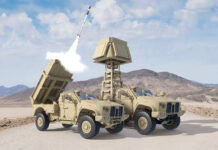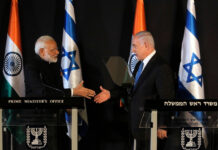China may be planning to conduct an anti-satellite (ASAT) test sometime this month, The Union of Concerned Scientists (UCS) claims in a recent post published by USC China Project Director Gregory Kulacki.
“The first media report on these rumors appeared in October. China’s Ministry of Defense challenged the information in that report, but in November contacts in China told us an announcement about an upcoming ASAT test was circulated within the Chinese government.” Kulacki said, “We were unable to find a public statement confirming plans for a test in the Chinese media or on publicly accessible Chinese government websites. Then, just before Christmas, a high-ranking U.S. defense official told us that the Obama administration was very concerned about an imminent Chinese ASAT test.”
If China does conduct another test, it is not clear what technology it would use or what it would target. There are different types of technologies that can be used to interfere with satellites, so a test would not necessarily destroy a satellite and create debris. Some reports suggest the test target may be a satellite orbiting at much higher altitude than in the 2007 test, possibly as high as the region where U.S., Russian and some Chinese navigational satellites orbit, approximately 12,000 miles (20,000 km) above the Earth. However, Kulacki notes that China may be wary of creating debris in a region where it could damage its own satellites.
One hint that China is planning a test is the fact that it used its interceptor technology to destroy targets in space twice before—in 2007 and 2010—on January 11. The 2007 test destroyed a defunct Chinese satellite at an altitude of about 530 miles (850 kilometers (km)). China used the same technology for a missile defense test in 2010.
China’s space program is still in the formative stages of its development. Both the United States and the former Soviet Union conducted equally high profile ASAT testing during comparable stages in the development of their space programs, and both eventually decided to stop destructive ASAT testing. Hopefully, China will eventually come to a similar conclusion. Beginning a meaningful bilateral dialog on space security between the United States and China could hasten the day.
Kulacki argues that Obama administration should try to dissuade China from conducting the test, noting that the Bush administration did not try to stop the January 2007 test, which created a cloud of debris that will continue to threaten satellites for decades. Given there are no regular channels of communication between U.S. and Chinese space authorities, any Obama administration action would require high-level involvement by both the U.S. and Chinese governments.

















